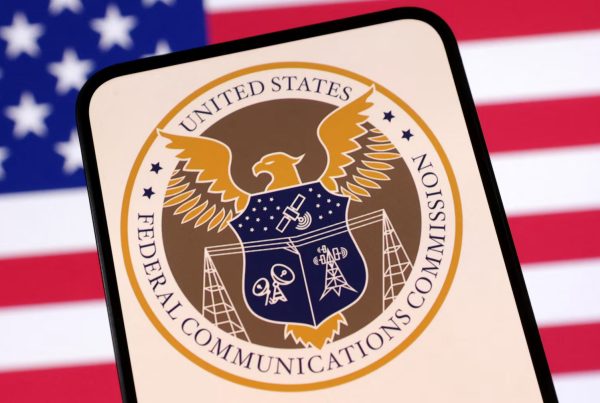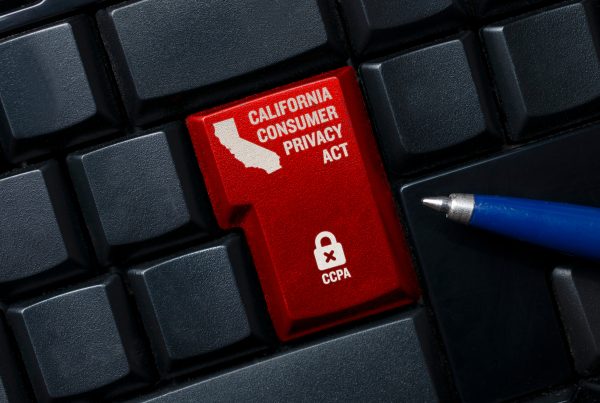The U.S. Supreme Court recently announced that it will hear the case of McLaughlin Chiropractic Assocs. v. McKesson Corp.[1] The validity of the Hobbs Act is at issue there. The Hobbs Act provides substantial protection to final orders of the Federal Communications Commission (“FCC”), among other federal agencies. If overturned, it could have a substantial impact on the FCC’s TCPA-implementing and carrier robocall-related regulations. With the U.S. Supreme Court having just struck down the Chevron doctrine,[2] and extended the time in which parties can directly appeal agency orders,[3] there is a real possibility it will do the same to the Hobbs Act. Below we discuss the protections the Hobbs Act provides to the FCC, McKesson, and what could happen if the Hobbs Act is overturned.
The Hobbs Act and the FCC
In the federal court system, when a federal claim, like a TCPA claim, is brought in federal court the case begins at a United States District Court. The country’s 94 District Courts serve as the trial courts in the federal court system. A final decision by a District Court can be appealed to the applicable Circuit Court of Appeal.
Under the Hobbs Act, only the Circuit Courts have the authority to determine the validity of an FCC final order. Therefore, the Hobbs Act has largely been interpreted to mean that all 94 District Courts are bound by the FCC’s final orders. If a party seeks to challenge the validity of an FCC final order, they must first lose at the District Court and then appeal to the relevant Circuit Court. Only then can the issue of whether an FCC final order is valid be considered. Most District Court cases never make it to the point where they can be appealed to a Circuit Court. When they do, it is usually only after significant time and expense. Thus, the Hobbs Act affords a great deal of protection to the FCC’s final orders.
McLaughlin Chiropractic Assocs. v. McKesson Corp.
In McKesson, the plaintiffs alleged that they received faxes from the defendant that violated the TCPA. The case was a class action. The district court decertified a portion of the class because of an issue with determining how the faxes were received. The FCC, in a final order, had declared that the TCPA does not apply to faxes received through an online fax service. The district court found the plaintiffs had no viable methodology for distinguishing between persons who received faxes on a stand-alone fax machine and those who received them through an online fax service. The plaintiff appealed the district court’s class-decertification order to the Ninth Circuit.[4]
On appeal, the Ninth Circuit found that the district court did not abuse its discretion in decertifying the class because, per the Hobbs Act, the district court was bound by the FCC’s final order. The plaintiffs petitioned the U.S. Supreme Court to hear this case, which was granted. Now the U.S. Supreme Court will decide, to what extent, if at all, the Hobbs Act causes District Courts to be bound by FCC final orders.
What Happens if the Hobbs Act is Overturned?
Overturning the prevailing interpretation of the Hobbs Act would allow parties to attack FCC final orders at the District Court level. That presents a much easier road for TCPA defendants to attack FCC final orders and regulations pertaining to the TCPA. This would also provide a path for those in the carrier community to more quickly challenge the FCC’s final orders implementing robocall-mitigation obligations (which, for whatever reason, no one seems to be challenging the FCC’s overreach of its narrow jurisdictional authority that Congress gave it under the TRACED Act)Turizo v. Subway Franchisee Adver. Fund Trust Ltd.,[5] a case from the United States District Court for the Southern District of Florida, provides an example of what could happen if the Hobbs Act is overturned. In Turizo the plaintiff alleged that he received unsolicited text messages from Subway to his cellphone number that was registered on the National Do Not Call Registry (“NDNCR”), giving him a TCPA claim in the process. The FCC, in a 2003 order, implemented a rule that prohibited the making of telephone solicitations to residential telephone subscribers that have registered their residential telephone number on the NDNCR (“DNC rule”). In that order, the FCC provided that its DNC rule applies to cellphones. Subway argued that its text messages to the plaintiff’s cellphone number did not violate the TCPA because the FCC exceeded its authority in the 2003 order. Subway explained that the portion of the FCC’s 2003 order expanding the DNC rule to apply to cellphone numbers was invalid as it exceeded the authority Congress provided to the FCC under the TCPA. The court agreed, stating that Congress provided the FCC authority to create a DNC rule that applied to residential telephone lines, but specifically “withheld from the FCC any authority to create a” DNC rule that applied to cellular telephone numbers. But despite the court finding at least part of the FCC’s 2003 order invalid, the court acknowledged it was bound by that order under the Hobbs Act. Thus, the court found it was powerless to do anything about the FCC’s unauthorized expansion of its authority. But if the Hobbs Act had been overturned before Turizo, at least one District Court would have found the FCC’s 2003 order to be invalid and held that the DNC rule does not apply to cellphones, which could have helped stem the incredible tide of predatory TCPA claims we see filed every day in Florida’s federal courts.
Turizo demonstrates the substantial impact that overturning the prevailing interpretation of the Hobbs Act could have. Keep an eye out for the Supreme Court’s decision in McKesson. It could deal a strong blow to the FCC’s authority.
[1] No. 23-1226, 2024 U.S. LEXIS 3060 (Oct. 4, 2024).
[2] Loper Bright Enters. v. Raimondo, 144 S. Ct. 2244 (2024).
[3] Corner Post, Inc. v. Board of Governors of the Fed. Reserve Sys., 144 S. Ct. 2440 (2024) (slip op, https://www.supremecourt.gov/opinions/23pdf/22-1008_1b82.pdf).
[4] True Health Chiropractic, Inc. v. McKesson Corp., No. 22-15710, 2023 U.S. App. LEXIS 28346 (9th Cir. Oct. 25, 2023).
[5] 603 F. Supp. 3d 1334 (S.D. Fla. 2022).
Mitchell Roth
![]()





